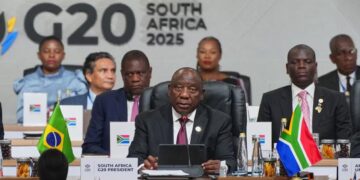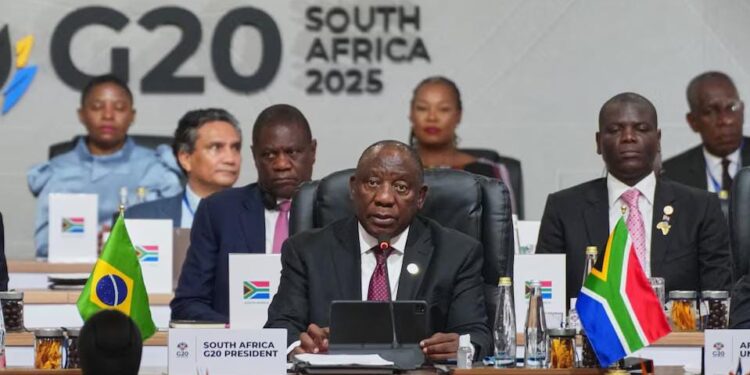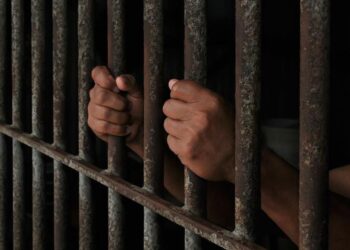By Enyichukwu Enemanna
A group of 20 world leaders summit has ended in Johannesburg, South Africa with the host President, Cyril Ramaphosa declaring the meeting successful despite boycott by the United States which accused South Africa of persecuting with white minority in the country.
At the closing ceremony of the G20 Summit on Sunday, which was the first in Africa since the group was formed, Ramaphosa said the far-reaching decisions reached at the meeting is a reflection of a “renewed commitment to multilateral cooperation”.
Ramaphosa has pushed through the declaration seeking to address challenges such as climate crisis and burgeoning debt profile despite opposition by United States which refused to be part of the summit.
The declaration showed world leaders’ “shared goals outweigh our differences”, Ramaphosa stated.
Trump had also kicked against South Africa’s agenda of helping developing nations transition to clean energy, cut the high costs associated with debt servicing that is crippling their economy and adapt to climate change-induced weather disasters.
Despite Trump’s position, Ramaphosa was able to secure consensus from the leaders present, except Argentina, which did not object to a declaration being made in its absence.
The declaration document stressed the seriousness of climate change and the need for adaptation, commended ambitious renewable energy targets but expressed worry over the hefty debt service charges which developing countries face.
The Johannesburg summit came after climate talks at COP30 in Brazil, in which oil-producing and high-consuming nations prevented mention of fossil fuels driving the crisis going in the final declaration.
Brazil’s President Luiz Inacio Lula da Silva said on Sunday that both the G20 and COP30 summits showed multilateralism was very much alive.
German Chancellor Friedrich Merz said the United States was mentioned only passively mentioned at the G20 summit and that it played only a minor role as new connections are being forged and the world reorganises itself.
“It wasn’t a good decision for the American government to be absent. But that’s something the American government has to decide for itself,” he said.
US is due to assume the presidency of the G20 bloc but South Africa which currently holds the office rejected Washington’s proposal to send an embassy official for the handover in Trump’s place, calling it a breach of protocol.
The White House has accused Ramaphosa of refusing to facilitate a smooth transition of the G20 presidency.
“We have not yet received any formal communication at this stage,” South Africa’s Foreign Minister Ronald Lamola told media on Sunday. “But we remain open … It’s up to them.”




































